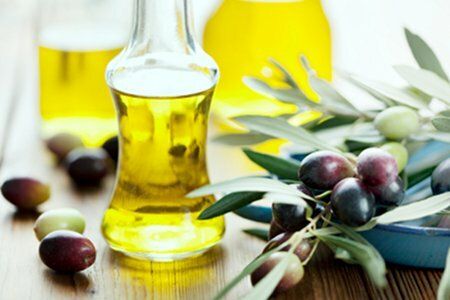The Delicious Diet That Reduces Your Risk of Heart Disease
February 26, 2013 17 Comments
How many of you have been to the Mediterranean? If you lived there you might not have to worry about heart disease.

Everybody pack your bags for Sicily (or another beautiful Mediterranean place) so we can all live a long healthy life. Snack Girl has never been there but she has seen it on TV and would love to visit.
It seems that people who live in Mediterranean countries have lower rates of heart disease than us here in the USA. Could it be the sunshine? The beaches? How about the raw beauty of these places? I am sure my blood pressure would decrease if it would just stop snowing!
Researchers have been trying to tease out the effect of the diet from these countries (which is not easy to do). Guess what? It has to do with olive oil and nuts.
From the New York Times:
About 30 percent of heart attacks, strokes and deaths from heart disease can be prevented in people at high risk if they switch to a Mediterranean diet rich in olive oil, nuts, beans, fish, fruits and vegetables, and even drink wine with meals, a large and rigorous new study has found.
Yes! The groups of people at risk for heart disease that ingested at least 4 tablespoons of olive oil per day or one quarter cup of nuts (walnuts, almonds, hazelnuts) with three servings a day of fruits and two servings of vegetables cut their risk of heart attack or stroke.
The Mediterranean dieters ate fish three times per week and ate white meat instead of red. They were encouraged to avoid processed meats and baked goods.
They even got to drink at least seven glasses of wine per week (with meals)!
Did they lose weight? No, they didn’t. But, their diet made a big difference in their risk for heart disease.
In our quest for the perfect waistline, we can forget that healthy can be about eating higher calorie foods like extra virgin olive oil and nuts. Our bodies use the fats and nutrients in these foods to maintain important body functions such as our cardiovascular system.
The researchers also found that a low fat diet was not easy for participants to maintain and had no effect on heart disease rates.
So, stop being afraid of fat. The right fat in the right amounts can be healthier than no fat at all.
What do you think of the success of the Mediterranean Diet? Does it change the way you think about food?

The Mediterranean Prescription: Meal Plans and Recipes to Help You Stay Slim and Healthy for the Rest of Your Life
$27.00 $15.49 Buy on Amazon.com
As an Amazon Associate, I earn from qualifying purchases.
Other posts you might like:

The Best Diets of 2013
U.S. News & World Report has taken on the challenge of ranking the best diets for the last three years. How do they do it?

Weight Watchers 360°: What’s New in 2013
Weight Watchers has launched a new product for 2013. How is it different?

17 Comments:
Sue
Noreen
Gayle Woodsum
Andrea
Audrey
Andy D
jennygirl
Cristina @ An Organic Wife
Fran Steidel
shelby keys
Photorecipe
sharon
Hypertension Talk
BARB L
Andy D
BARB L
Andy D